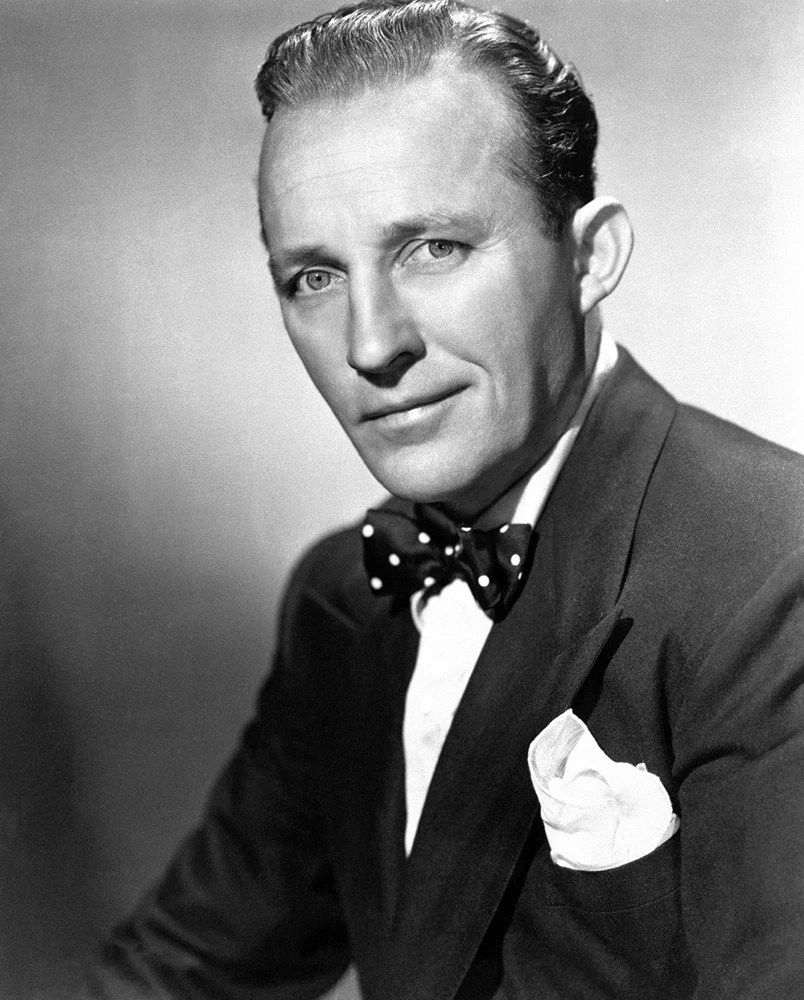Bing Crosby, one of the most influential entertainers of the 20th century, left an indelible mark on the worlds of music, film, and radio. His smooth baritone voice and charming personality captivated audiences around the globe, making him a household name. This article explores the life and legacy of Bing Crosby, delving into his biography, achievements, and the impact he had on the entertainment industry.
Born in Tacoma, Washington, Bing Crosby began his career in the early 1920s and soon became a major star in the burgeoning world of radio and film. His unique blend of jazz, pop, and traditional music led to the creation of a new genre that resonated with millions. Throughout his career, he won numerous awards, including an Academy Award and several Grammy Awards, solidifying his status as a music and film icon.
This comprehensive article will cover various aspects of Bing Crosby's life, including his early years, rise to fame, major works, and lasting influence on contemporary artists. Whether you're a long-time fan or new to his music, this article aims to provide a thorough understanding of why Bing Crosby remains an enduring figure in American culture.
Table of Contents
- Biography of Bing Crosby
- Early Years
- Rise to Fame
- Musical Legacy
- Film Career
- Personal Life
- Awards and Honors
- Lasting Impact on Music and Film
Biography of Bing Crosby
Bing Crosby was born Harry Lillis Crosby Jr. on May 3, 1903, in Tacoma, Washington. He was the fourth of seven children in a working-class family, and his father was a bookkeeper while his mother was a homemaker. Bing's love for music began at an early age, influenced by his mother’s singing and his exposure to various musical styles.
| Personal Information | Details |
|---|---|
| Name | Harry Lillis Crosby Jr. |
| Date of Birth | May 3, 1903 |
| Place of Birth | Tacoma, Washington, USA |
| Occupation | Singer, Actor, Producer |
| Date of Death | October 14, 1977 |
Early Years
Bing Crosby's early years were marked by a passion for music. He took up the trombone and participated in various school performances. After graduating from high school, he attended Gonzaga University, where he continued to pursue his interest in music. During the 1920s, he began performing in local bands, which eventually led him to Hollywood.
Rise to Fame
Crosby's breakthrough came in 1927 when he joined the Paul Whiteman Orchestra, where he gained national attention for his innovative vocal style. He made his first recordings during this period, and his popularity soared with hits like "Ain't She Sweet" and "My Blue Heaven." In 1931, he signed with RCA Victor and began a successful career in radio, which further cemented his status as a top entertainer.
Transition to Film
In the 1930s, Crosby made a seamless transition to film, starring in hit movies such as "Pennies from Heaven" (1936) and "The Country Girl" (1954). His on-screen charisma and musical performances won him fans worldwide, leading to numerous box office successes.
Musical Legacy
Bing Crosby is often credited with popularizing the "crooning" style of singing, which revolutionized the music industry. He was one of the first artists to use microphones effectively, allowing for a more intimate and personal sound. His recordings of classic songs, including "White Christmas," remain timeless and are still celebrated today.
Influence on Future Artists
Crosby's influence can be seen in the work of many contemporary artists, including Frank Sinatra, Dean Martin, and Michael Bublé. His ability to blend different musical genres paved the way for future generations of musicians.
Film Career
Bing Crosby's film career spanned several decades and included numerous classic films. His role in the "Road to..." series, alongside Bob Hope, became iconic, showcasing their comedic chemistry and musical talents. Crosby's work in film earned him critical acclaim and solidified his legacy as one of Hollywood's greatest stars.
Personal Life
Bing Crosby married actress Dixie Lee in 1930, and the couple had four sons. Their marriage faced challenges, but they remained together until Lee's death in 1952. Crosby later married Kathryn Grant, with whom he had three children, and the couple enjoyed a long and happy marriage.
Awards and Honors
Throughout his illustrious career, Bing Crosby received numerous accolades, including an Academy Award for Best Actor for his role in "Going My Way" (1944) and several Grammy Awards. He was also awarded the Presidential Medal of Freedom in 1964 for his contributions to American culture.
Lasting Impact on Music and Film
Bing Crosby's impact on the entertainment industry is immeasurable. He pioneered new recording techniques and was a key figure in the development of the modern music industry. His films and music continue to inspire and entertain audiences worldwide, ensuring that his legacy lives on.
Conclusion
In summary, Bing Crosby's life and career were marked by groundbreaking achievements that transformed music and film. His innovative approach to singing and acting left an enduring legacy that resonates today. As we celebrate his contributions, let us reflect on the impact he has had on the entertainment industry and encourage new generations to explore his timeless works.
We invite you to share your thoughts about Bing Crosby in the comments section below, and don't forget to check out our other articles for more insights into the world of entertainment.
Final Thoughts
Thank you for taking the time to explore the legacy of Bing Crosby with us. We hope you found this article informative and engaging. Be sure to return for more exciting content on your favorite entertainers!
Article Recommendations


